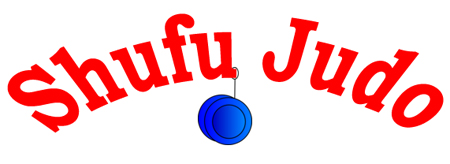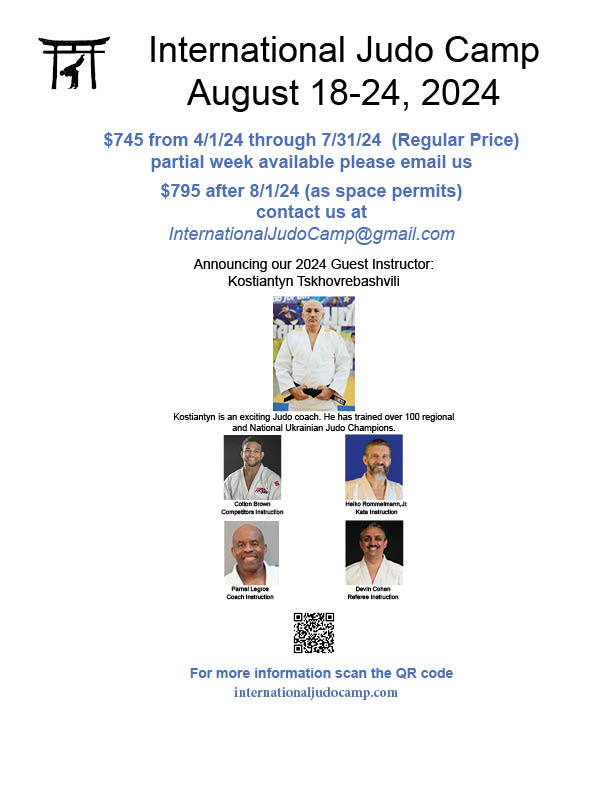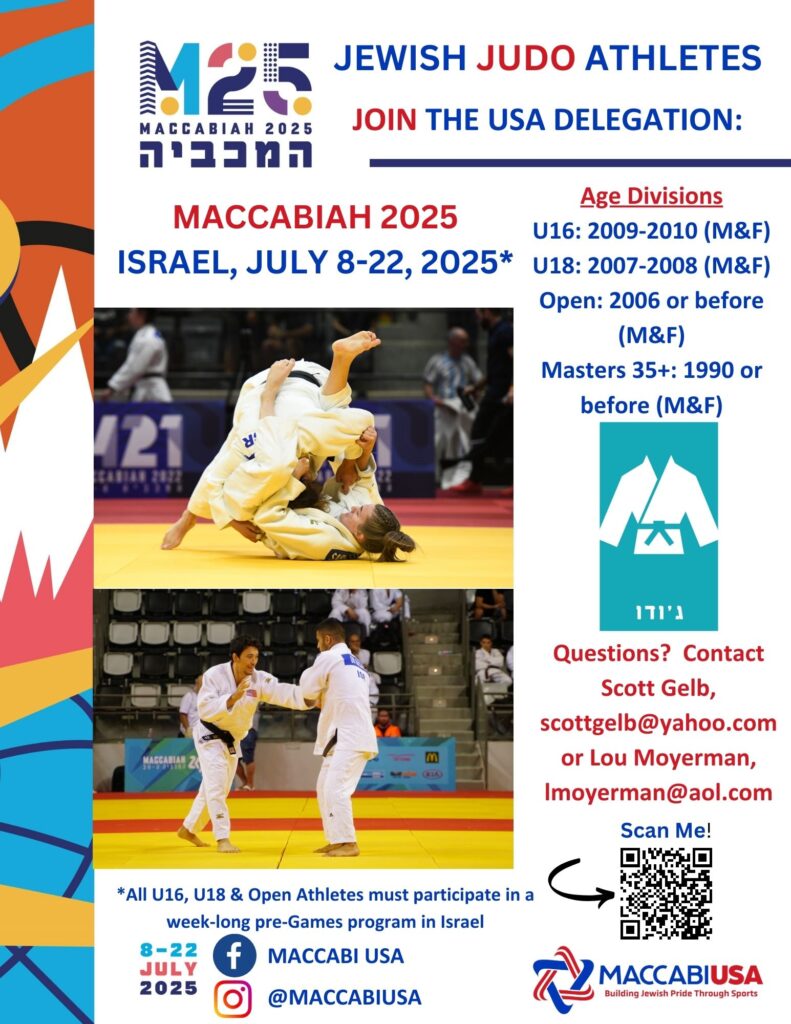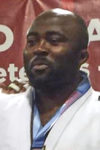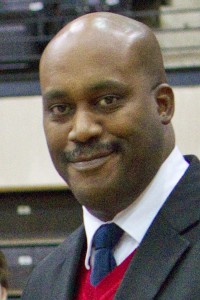
The first thing you notice about Bobby Donaldson is that he is an imposing figure. At 6’4” and 240 pounds, he could easily be the object of most attention when he walks onto a judo mat.
But Donaldson, who recently earned his IJF-B Continental Referee status, knows that his job is not to be seen. Instead, as a top referee his job is to use his decades of experience as a competitive judoka and teacher to objectively assess the action between competing judoka, whether they are five-year olds or elite level international fighters, while remaining relatively unnoticed in the competitive mat area.
Donaldson, 49, is a Rokudan (6th Degree Black Belt), attained the rank of Senior Chief in the US Navy, and is President of Maryland Judo. He recently discussed his career path in judo, and his significant influencers.
Bobby was eight years old when his mother signed him up, along with his sister, for judo lessons at his local recreation center in San Diego, California. “I really enjoyed it and was jealous of the kids at the head of the line who conducted the bow-in.”
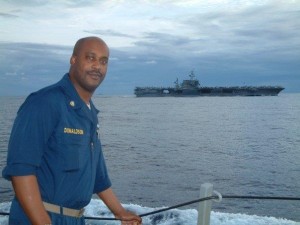
Over the years, Donaldson competed in every junior and senior weight division. He won the All-Navy Judo Championships (1985-87), and was the only U.S. sailor to compete and medal at the Royal Naval Judo Championships (twice). He finally ended his competitive career in 2001, winning the 100 kg division at the London Open Championships at the age of 35.
To whom do you credit with significant advances in your career?
“There have been too many to name because the Donaldson family has always been military (my father was also a Senior Chief in the Navy) so we moved every three to five years.
“I am a product of the United States Marine Corps Judo system. Over the course of my life, I have had six principal Senseis who oversaw different aspects of my Judo. Of those six, four profoundly shaped my Judo over the years. Master Gunnery Sergeant (MGYSGT) Jose Francisco Rios was my original Sensei and a very talented National Referee. When I was 12 and had started to grow taller, he took me to Gunnery Sergeant (GYSGT) Bill Dye.
“Gunny Dye was significant because he transformed my Judo from that of an adolescent to that of an adult, taking advantage of my height. To this day, the same aspects of Judo that Gunny Dye taught me I try to instill when I teach.
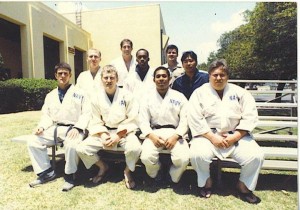
1987 – Donaldson right in the middle
“Percy Sekine, Sensei of the Judokwan club in London, taught me the difference between teaching and training. When a competitor is out there on the circuit, they stick to what they do best, however the Judo base isn’t expanded. During the off season when people are recovering, real Judo can be taught and incorporated into the game.
“Sergeant Major (SGTMAJ) Mayfield took the helm as I entered my more formative adult years and has guided my ascent as he is transforming me into a Sensei.”
When and how did you realize that you wanted to advance to a high level of refereeing?
“When I returned to America, after spending a decade in Europe and Asia, I asked what I could do to service Judo. SGTMAJ Mayfield pushed me, very forcefully, towards refereeing. He saw an aptitude in me that could be focused and appreciated in the Referee Corps.
“I actually had no ambition towards refereeing and there is no definitive manual or guidebook that provides for advancement in this field, it is all trial and error. He told me, ‘We have more than enough coaches. If you want to make a real and lasting impact on judo, give me some quality refereeing’.
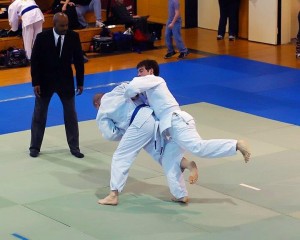
“After discussing this and other aspects with Sensei Jim Takemori, who said that ‘You were a competitor and everyone can see that you know judo’, I decided that there was room for a quick ascent if I was committed to improving and could attend a volume of events.
“The first tournament that I attended to referee was the Naval Academy Team Tournament in October 2009. It took me 4 years and 4 months from then to my certification as an IJF-B referee.”
That’s a rapid advancement. How were you able to do it?
“Shufu takes its responsibility of referee development very seriously. Our yearly Referee Seminars (Ed: now the Rules Clinic) gave me the opportunity to meet and discuss refereeing with Olympic Referees Saito, Fukuda, and Chi, and Para-Olympic Referee Berliner.
“This, coupled with the depth of referee knowledge in Shufu which is unparalleled in any other Yudanshakai made this possible. We have Senseis James Takemori, Dick Hugh (former chairman of the US Referee Commission), and Roy Englert, who is currently the longest-serving U.S. Referee Commission member.
“Another major force is the extensive support network, including College Park Judo and the MOJJJO organization, which provides me with the opportunity to grow and learn, which I attribute this milestone to.
“I also utilized very strong mentorship, and had a plan and commitment not only to improve at every step, but to improve upon the experience of others.”
How has your military experience impacted your development as a referee?
“The movie ‘A Few Good Men’ says it all. “We follow orders or people die”. Too often people read way too much into this rule or that rule. They question why the IJF did this or that. Does it really matter? No. They make the rules, my job is to enforce those rules and create a fair contest.
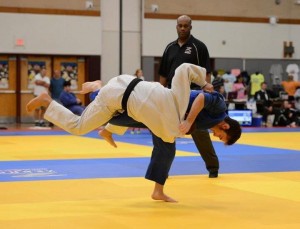
“The IJF rules are written in a foreign language. For the first couple of tournaments of the year, we take a more literal interpretation on this or that rule. By the spring, we adjust our stances as we gain a better understanding of what the IJF meant. Being an intelligent person, I read the rules, the changes and make my own conclusions before I seek further guidance from my friends in the United States, Europe, and in Asia.”
How do you prepare for refereeing a tournament?
“I find it vital to rest, relax then go out there and perform.”
What would you say to encourage judokas to consider making refereeing a major part of their judo?
“It is a rewarding career when you travel outside of the United States. Every country holds the referees in high esteem, as we are viewed as impartial arbiters, coupled with the fact that refereeing gives you the best seat in the house. You get to be a small part of the biggest matches.”
What’s next for you as a referee?
“My immediate goal is to Referee the Conseil International du Sport Militaire (CISM) in Korea this year, considered the Olympics for the militaries of the world. It is one of the toughest tournaments in the world, with a very high level of skill. To give you an example, the London Olympics gold medalist in 48kgs (Menezes) from Brazil took the silver medal at the CISMs in 2011.”
One of the first times this correspondent saw Bobby Donaldson referee was at Sergeant Major Mayfield’s tournament in North Carolina several years ago. He was standing on the mat, about to referee a match between two very young judokas whom he towered over. I was struck with the skillful, gentle guidance he gave these small children to make them as comfortable as possible in this, probably their first match ever.
And he was equally expert in refereeing at the 2014 U.S. Senior Nationals in Reno, Nevada last spring, where he refereed final rounds between the toughest, most skillful U.S. judokas who brought decades of fighting experience to those gold-medal matches.
Over the years, Senior Chief Bobby Donaldson has proven his skill and knowledge to be at the level of the top international referees, and it likely won’t be long before he earns the right to be an IJF-A, the top level in the world.
Stay tuned!
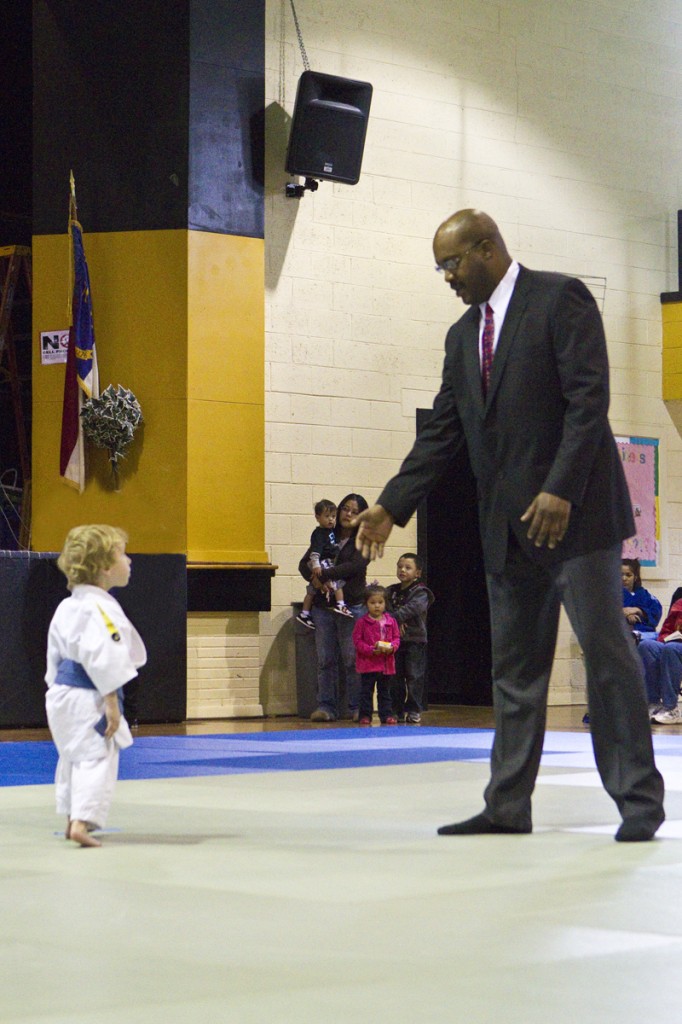
Article by Chuck Medani
